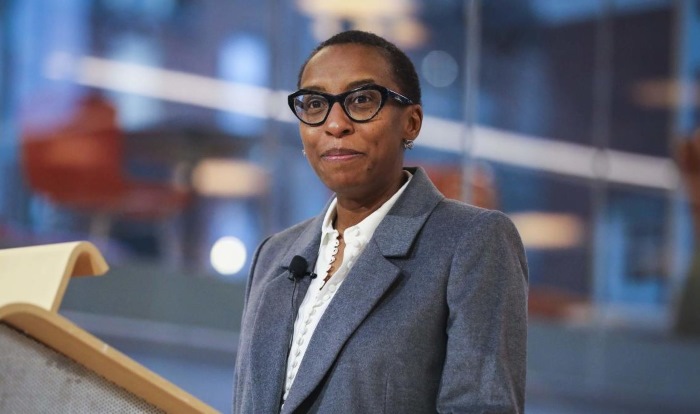In a stunning turn of events at Harvard University, the historic moment heralding the inauguration of Claudine Gay as its inaugural Black president has taken a tumultuous and contentious trajectory. Dr. Gay’s resignation has not only stirred academic circles but has also become a lightning rod for discussions across the nation on issues of race, equity, and leadership in the higher education landscape.
Clashes and Controversies: The Untold Story of Dr. Gay’s Tenure
Claudine Gay, during her late September inauguration, stood as a beacon of hope and progress. Her presence marked a groundbreaking milestone in the institution’s 387-year history. According to reports from the Wall Street Journal, she declared her presidency with pride, emphasizing the honor and significance of becoming the first Black president at Harvard University.
The Fallout and National Implications
In her resignation speech, she cited a relentless campaign aimed at her ousting. She alleged the propagation of lies, personal attacks, and the perpetuation of racial stereotypes about Black competence. These clashes highlighted a deepening rift over principles surrounding diversity, equity, and the changing cultural landscape at Harvard.
Amidst the storm, accusations of plagiarism surfaced, shaking the foundation of her academic standing. What began as murmurs snowballed into a chorus of doubt, challenging Dr. Gay’s scholarly contributions and qualifications for the presidency.
Impact Beyond Harvard’s Walls
Dr. Gay’s tenure was marked by clashes over campus culture and academic principles. Her decisions heightened tensions significantly. These decisions involved the suspension of a renowned Black economist and the removal of a law professor over representation issues. These actions sparked outrage among faculty, students, and conservative circles.
National Discourse on Race and Leadership
Dr. Gay’s resignation serves as a catalyst for broader discussions on race, leadership, and the intricacies of equity in academia. Beyond the walls of Harvard, it sparks conversations that delve into these critical issues. It coincides with national debates on racial diversity in education, the impact of political and legislative decisions on campus life, and the intersection of race and meritocracy in leadership positions.
Dr. Claudine Gay’s departure from the presidency at Harvard University marks not just the end of a brief tenure. It ignites a nationwide conversation. Her resignation symbolizes the ongoing struggle to reconcile issues of race, equity, and leadership in prestigious academic institutions. It raises poignant questions about the path to progress and inclusivity in higher education. As Harvard seeks to navigate this turbulence, the broader implications of this saga reverberate throughout the corridors of academia and society at large.
Dr. Gay’s exit from Harvard sparks national race, leadership, equity talks, challenging academia’s progress and inclusivity in prestigious institutions according to Bloomberg.

